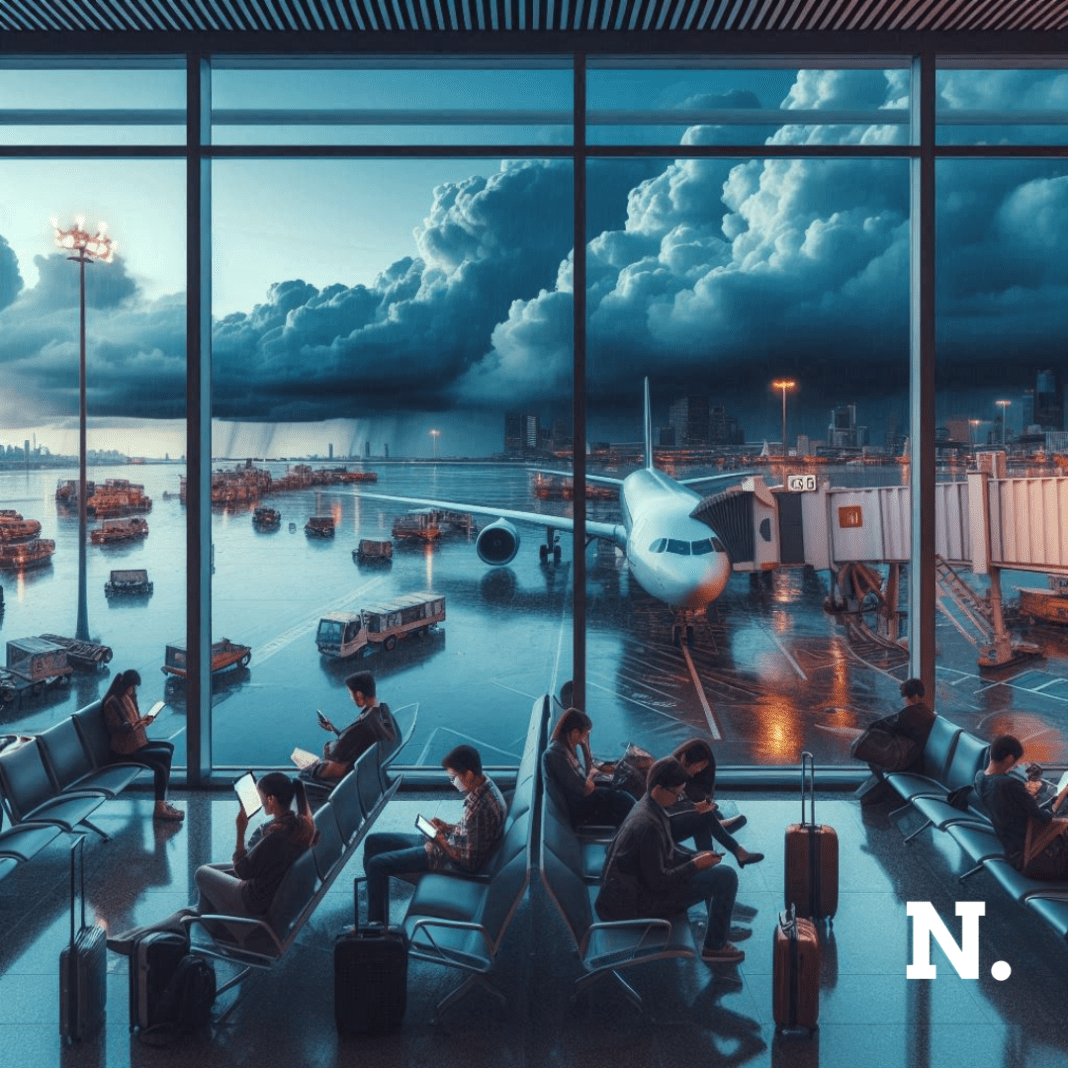Summer travel can be particularly stressful when severe weather intervenes, as was the case on Tuesday when inclement conditions caused significant disruptions at O’Hare International Airport and Midway Airport. The adverse weather resulted in ground stops and numerous flight delays, affecting many travelers’ plans.
Impact of the Weather on Airports
Although O’Hare was not extra crowded, hundreds of flights were delayed, canceled, or otherwise affected by the severe weather. United Airlines had alerted passengers in advance that their flights might be impacted, varying in severity. Frisco Chavez, who was traveling to San Francisco, expressed concern about the weather conditions. He mentioned that it was a challenging morning, with difficulties even in getting Ubers to the airport, compounded by continuous flight delay updates. He described waking up to severe thunderstorms, imagining that many others were also struggling with their travel plans.
Impact of Weather on Passengers
Elizabeth Heeman, who had flown in from Barcelona without issues, faced delays in Chicago while on her way to Sarasota, Florida. Despite the delay, Heeman remained positive, stating she did not mind because she loves Chicago. She considered the city a second home and appreciated the unexpected extra time she got to spend there, exploring the city’s cultural attractions and savoring local delicacies.
On the other hand, Paulette Burgess, trying to return to West Virginia after a weekend in Chicago, faced more severe disruptions. Burgess had two flights canceled, with one cancellation occurring while she was in line for security. She planned to fly to Lexington, Kentucky, rent a car, and drive two more hours to reach home, illustrating the extent of the impact on her travel plans. Burgess expressed frustration but acknowledged that the safety concerns brought by severe weather were paramount, and she appreciated the airline’s efforts to rebook her journey as swiftly as possible.
Barbara Nakanishi of Niles also experienced delays despite planning to arrive early for her flight. Nakanishi recounted that they got up at 5 a.m. but had to adjust their departure time due to the weather. They rescheduled their cab to come two hours later, leaving their home at a quarter to 9 a.m. instead of the originally planned time, reflecting the widespread impact of the weather on various travel arrangements. She expressed her understanding, recognizing that weather conditions were beyond anyone’s control and praised the airport staff for handling the situation efficiently.
Commute Challenges due to the Weather
The commute to O’Hare was particularly challenging due to the rain-soaked conditions, causing slow travel on the Kennedy Expressway. Lightning illuminated the sky, adding to the difficulties faced by travelers on their way to the airport. Despite these challenges, some patient travelers understood the necessity of weather delays. They expressed a resigned acceptance, noting that if they had to be stuck somewhere, Chicago was not a bad place to be.
The severe weather not only caused immediate disruptions but also highlighted the broader issues associated with summer travel and weather-related delays. Travelers’ experiences underscored the importance of preparation and flexibility when dealing with such unpredictable conditions. The collective patience and adaptability of passengers reflect a broader understanding that weather, despite its inconveniences, is an uncontrollable aspect of air travel that requires accommodation and resilience.
Reflections on Travel Resilience
This incident serves as a reminder of the unpredictable nature of travel, especially during seasons prone to severe weather. It prompts considerations for future travel plans, emphasizing the need for travelers to stay informed about weather conditions and potential disruptions. Moreover, the experiences shared by passengers like Chavez, Heeman, Burgess, and Nakanishi offer insights into the varied responses and coping mechanisms of individuals when faced with travel uncertainties.
The experiences from this day of severe weather disruptions provide a reflection on the resilience required in modern travel. The ability to adapt to sudden changes, maintain a positive attitude, and find alternative solutions are qualities that serve travelers well. As severe weather events become more common due to changing climate patterns, these experiences highlight the evolving nature of travel resilience and the ongoing need for both passengers and travel providers to stay agile and responsive.
Through these shared experiences, it becomes clear that while severe weather can disrupt plans, it also brings out the resilience and adaptability of travelers. As the travel industry continues to evolve, the lessons learned from such incidents will play a crucial role in shaping future responses and improving the overall travel experience.





